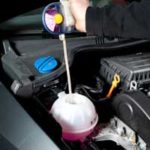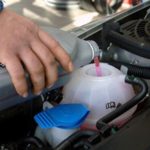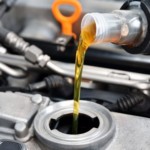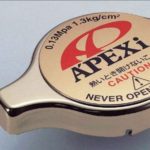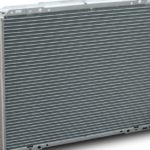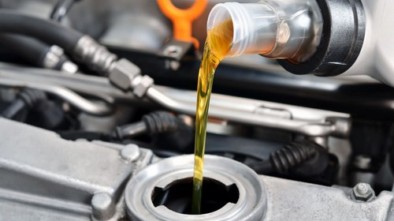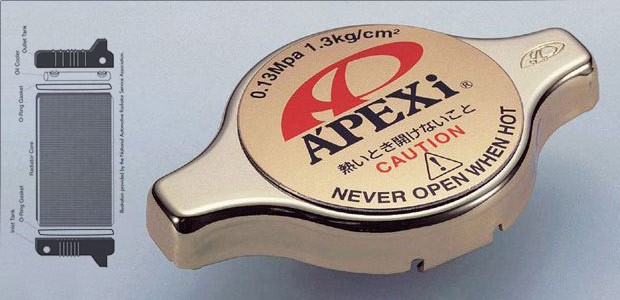Antifreeze - Part 1
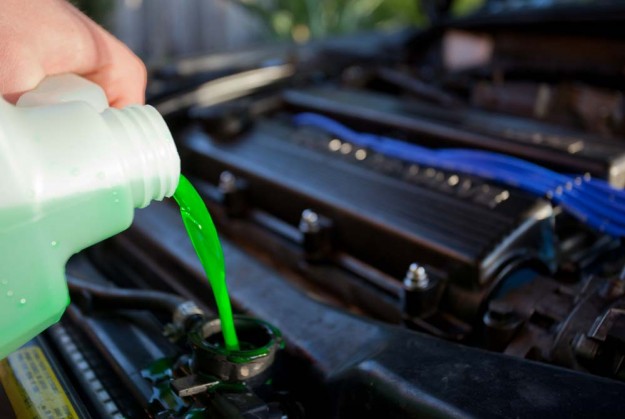
Antifreeze
Antifreeze is a chemical substance used in SUS engines. Its main purpose is to lower the freezing point of the liquid to a point lower than the outside temperature at which the vehicle is located. This prevents significant damage to the mechanical components (e.g. engine block).
Most internal combustion engines use coolant. Clean water should never be used in the engine cooling system! There are numerous reasons for this, and in the following we will try to explain the most important.
Preventing fluid icing
During winter, water that cools the engine block can freeze. Since water occupies a larger volume in the frozen state than in the liquid state, when the ice begins to expand it can cause serious engine damage. The role of antifreeze is to lower the freezing point of the mixture to a level where it is safe to avoid such a situation.
Prevention of liquid evaporation
During summer, the liquid in the cooling system is often at temperatures close to the boiling point of water (90-100°C). If clean water were found in the system, it would evaporate quickly and the system would run out of fluid necessary to cool the engine. It is clear that this situation can also lead to serious engine damage. The role of antifreeze is to increase the boiling point of the liquid in the vehicle's cooling system and thus prevent it from gaseous and evaporating. With proper antifreeze, it is possible to achieve a very wide temperature range at which the mixture remains in a liquid state - from -34°C to +107°C (for 1: 1 mix).
Anticorrosive properties
Antifreeze also has anticorrosive properties. In this way, it protects the metal parts of the engine, radiator and other components of the cooling system.
In addition to these, antifreeze has other properties. Some of them are: prevents foaming, prevents deposition, prevents the formation of limescale, lubricating properties…
Methanol (methyl alcohol) was used as an antifreeze and ethylene glycol is used today. Unlike methanol and water, ethylene glycol evaporates very poorly.
It should be borne in mind that ethylene glycol is toxic to humans and animals, so be very careful when handling and disposing of it!
Just as it is not recommended to use clean water, so it is not recommended to use pure antifreeze. The best results are achieved with a mixture of optimal amounts of water and antifreeze. It is best to use distilled water as this will avoid the formation of scale. Also, never mix different types of antifreeze! If you are not sure which antifreeze is in the car's cooling system, change the coolant.
| Percentage of ethylene glycol when mixed with water |
Freezing point (° C) | Boiling point (° C) |
|---|---|---|
| 0 | 0 | 100 |
| 10 | -4 | 102 |
| 20 | -7 | 102 |
| 30 | -15 | 104 |
| 40 | -23 | 104 |
| 50 | -34 | 107 |
| 60 | -48 | 110 |
| 70 | -51 | 116 |
| 80 | -45 | 124 |
| 90 | -29 | 140 |
| 100 | -23 | 197 |
Freezing and boiling points of the ethylene glycol / water mixture relative to the percentage of ethylene glycol in the mixture (coolant)
Choosing the right antifreeze
Different types of antifreeze can be found in our market (G11, G12 - VW labels…) and quality. It is extremely important that you pour the appropriate antifreeze into your vehicle. If you are not sure which type of antifreeze is appropriate for your vehicle, consult the service booklet, or an authorized service center for your vehicle type.
Making coolant mixture
The appropriate mixture of antifreeze and water is made according to the atmospheric conditions prevailing in the environment in which the car will be driven. To determine the proper ratio of antifreeze to water, it is best to use the table provided in the text. Before that, make sure that the antifreeze you are buying is concentrated (100%) or is already diluted, so make the appropriate mixture.
Antifreeze topping
The coolant should always be between the MIN and MAX marks on the expansion vessel. The level is measured when the car is parked on a flat surface, with a completely cold engine. Never pour antifreeze first and then water, or vice versa; always make the mixture first and top up.
Antifreeze replacement
Also, depending on the vehicle manufacturer, the coolant should be changed to 2-3 years, as it loses its properties over time (primarily anticorrosive). When replacing antifreeze, especially when switching from one type of antifreeze to another, it is advisable to flush the cooling system.
Source: www.auto-delovi.org
Recommendation of similar texts:

Hi there, I am Mladen and I am an auto enthusiast. I started this blog years ago to help like minded people share information about latest cars, car servicing ideas, used car info, exotic cars, and auto technology. You will find helpful articles and videos on a wide variety of cars - Audi, Mercedes, Toyota, Porsche, Volvo, BMW and much more. Ping us if you have anything cool to share on latest cars or on how to make older cars more efficient, or just want to say hi!

